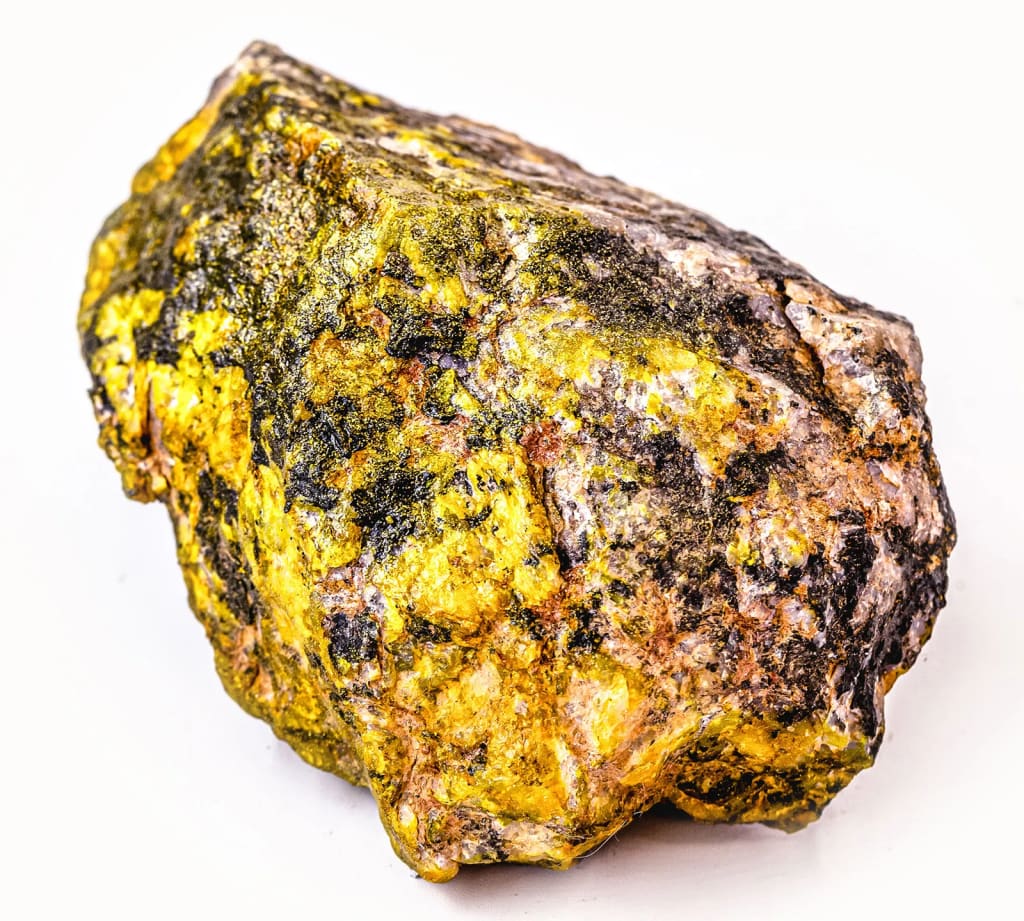Why US needs Russian Uranium?
Russian Uranium

In response to the invasion of Ukraine, the U.S. and other countries have imposed sanctions on Russia, targeting energy resources such as oil and gas, but not uranium. Russia plays a significant role in the global nuclear energy sector, especially in the uranium supply chain. Justine Calma, a science reporter at "The Verge," delved into the complexities of why the U.S. finds it challenging to sever ties with Russian uranium. While the U.S. has successfully reduced its reliance on Russian oil and gas, it has hesitated to take action on uranium due to the substantial portion of uranium supply that comes from Russia.
Uranium is a crucial nuclear fuel due to the ease with which its isotope, U-235, can be split during fission, resulting in the release of a large amount of energy. Despite the ongoing debate surrounding nuclear power, it still accounts for approximately half of the U.S.' carbon-free electricity. The Biden administration is currently making significant investments in nuclear energy to align with the country's climate objectives, underscoring the importance of uranium in this context. When discussing nuclear power, uranium ore serves as the starting point, given its radioactive nature. It is essential to handle uranium with care, as it requires specific precautions. Most uranium ore samples contain a minimal percentage of uranium, with the majority consisting of regular rock and other elements that uranium decays into overtime.
The presence of daughter products from uranium decay can be detected using sensitive devices like Geiger counters. Within a uranium ore sample lies minerals like uraninite, which are rich in uranium and crucial for nuclear energy production. The material extracted from the ground, such as uranium, contains very low levels of U-235. A large amount of uranium ore is required to produce a small quantity of fuel, and significant effort is needed to achieve this. In order to be utilized as nuclear fuel, uranium must undergo a conversion and enrichment process, which involves tightly packing a group of U-235 atoms.
The mining of uranium, its conversion into yellowcake, transformation into a gas, enrichment to increase U-235 concentrations, and fabrication into fuel rods are all necessary steps. This complex process is outsourced to various companies, with only a few countries like France, Russia, and China possessing the capability to carry it out. Security concerns arise throughout the supply chain, as enriched uranium can be used for both nuclear energy and weapons. The nuclear supply chain has faced challenges due to market saturation, but with increasing demand, some governments are reconsidering nuclear power as a cleaner alternative to fossil fuels.
The Russia-Ukraine conflict has heightened tensions between the U.S. and Russia, underscoring the vulnerabilities in the nuclear supply chain. One proposed solution is the establishment of a strategic uranium reserve, serving as a stockpile for emergency situations to ensure the continuous operation of power plants. In the event of prolonged conflicts like the ongoing war, this reserve could be tapped into for a stable energy supply.
The development of next generation nuclear reactors is being jeopardized by the ongoing war. Currently, most nuclear plants operate using fuel enriched to 5% of U-235. However, the newer reactors under development require a higher enrichment level of up to 20%. This higher concentration of U-235 in the fuel leads to greater efficiency, enabling the construction of smaller reactors compared to the current large-scale ones. By reducing the size, the costs associated with nuclear energy can also be minimized, which has been a major obstacle in its widespread adoption. Currently, Russia is the only country capable of commercially producing this NextGen fuel. Although the United States is working on establishing its own production facility, it will still take several years to significantly enhance American uranium independence.
Considering the efforts made to stockpile and enrich uranium, some argue that the United States should also resume mining it. However, mining uranium has a problematic history. From the 1940s to the 1980s, mining companies extracted substantial amounts of uranium ore in the Western U.S., leaving behind a significant environmental mess that the EPA is still trying to clean up today. Many indigenous tribes strongly oppose the resumption of mining on or near their lands, as these areas are still contaminated with toxic waste.
The consequences of nuclear power extend beyond mining. There are concerns regarding the storage of radioactive waste and the potential threat of meltdowns. There is a significant amount at stake in this situation. The recent announcement by the Biden administration to achieve 100% carbon-free energy by 2035 has sparked a discussion on the role of nuclear power in this endeavor. This debate is expected to intensify as we move forward.
Undoubtedly, climate change poses a real crisis that the world must confront, and determining how to address this crisis is one of the most pressing challenges we face. Nuclear energy is a central topic in this debate and will continue to be a contentious issue. Advocates for nuclear energy argue that while it may not be perfect, it is a viable option for carbon-free energy, especially considering the limited alternatives available. However, it is important to note that this debate is unlikely to be resolved in the near future.
About the Creator
Nameless writer
"A weaver of words, crafting tales that dance on the edge of reality, inviting readers to lose themselves in the symphony of imagination"






Comments
There are no comments for this story
Be the first to respond and start the conversation.